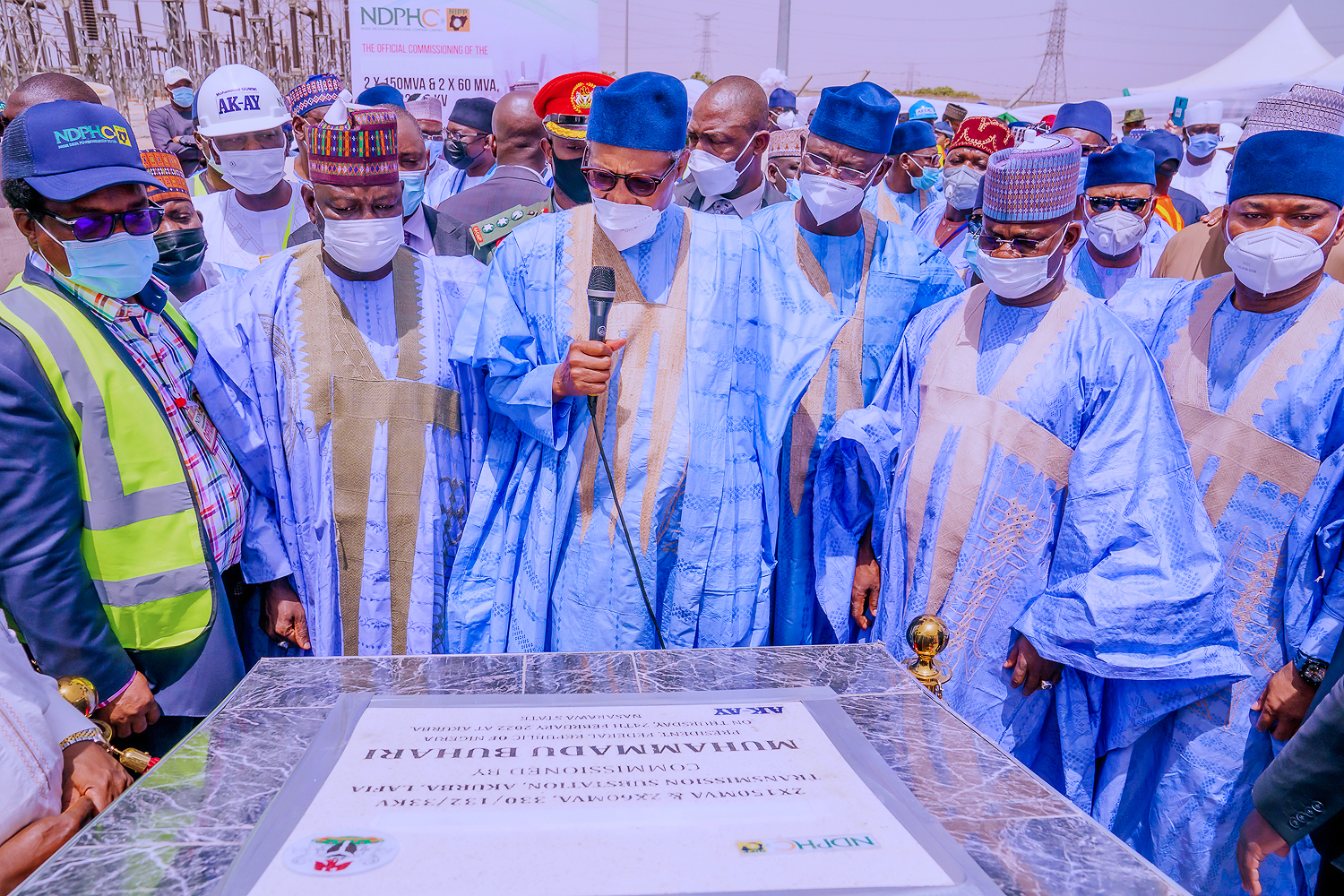Business
We’re Decentralising National Grid – Buhari

President Muhammadu Buhari says his administration is decentralising the nation’s national grid through renewable mini-grids to address the challenges of electricity supply across the country.
The president, who revealed this in an interview he granted Bloomberg News, said the Federal Government had earmarked 550 million dollars to provide 20,000 Standalone Solar Systems (SHS), as well as Solar Hybrid mini-grids in over 250 locations.
“We are also decentralising the national grid through renewable driven mini-grids.
“The 550 million dollar Nigeria Electrification Project has deployed more than 20,000 Standalone Solar Systems (SHS), as well as Solar Hybrid mini-grids in over 250 locations,” he said.
On grid modernisation, the Nigerian leader said there were hundreds of ongoing projects and initiatives attracting funding from local and foreign investors.
He said: “Take my Presidential Power Initiative (PPI), a government-to-government initiative between the Governments of Nigeria and Germany, with Siemens AG, to upgrade the electricity grid with a 2 billion dollar investment.
“Once signed into law the constitutional amendment bill – recently voted through parliament – will allow state governments to generate and transmit their own electricity, further facilitating investor participation in our market and enabling states and local businesses to transmit excess supply to the grid.”
On the persistent calls on Nigeria by the International Monetary Fund (IMF) and the World Bank to remove fuel subsidy, the president remarked that subsidy removal was becoming increasingly untenable.
“Most western countries are today implementing fuel subsidies. Why would we remove ours now? What is good for the goose is good for the gander!
“What our western allies are learning the hard way is what looks good on paper and the human consequences are two different things.
“My government set in motion plans to remove the subsidy late last year. After further consultation with stakeholders, and as events unfolded this year, such a move became increasingly untenable,” said Buhari.
He added that boosting internal production for refined products would also help.
“Capacity is due to step up markedly later this year and next, as private players and modular refineries (Dangote Refinery, BUA Group Refinery, Waltersmith Refinery) come on board.
“The exchange rate is still susceptible to external shocks that can suddenly and severely affect Nigerian citizens.
“As we step up domestic production – both in fuel (enabled by PIA) and food (agricultural policies) – the inflationary threat shall diminish, and we can move toward unification,” he said. (NAN)
Transport
Automated Points Concession : FAAN Workers Gave 72hrs To Revise Decisions In PH

Transport
FAAN Announces Pick-Up Points for Go-Cashless Cards

Business
Fidelity Bank To Empower Women With Sustainable Entrepreneurship Skills, HAP2.0
-

 Politics4 days ago
Politics4 days agoSenate Urges Tinubu To Sack CAC Boss
-

 News4 days ago
News4 days agoAmend Constitution To Accommodate State Police, Tinubu Tells Senators
-

 News4 days ago
News4 days agoDisu Takes Over As New IGP …Declares Total War On Corruption, Impunity
-
Business4 days ago
Crisis Response: EU-project Delivers New Vet. Clinic To Katsina Govt.
-
Business4 days ago
President Tinubu Approves Extension Ban On Raw Shea Nut Export
-
Business4 days ago
President Tinubu Extends Raw Shea Nuts Export Ban To 2027
-
Business4 days ago
Fidelity Bank To Empower Women With Sustainable Entrepreneurship Skills, HAP2.0
-
Sports4 days ago
NDG: Rivers Coach Appeal To NDDC In Talent Discovery

